The Fine Print: Common Exclusions from Your Mitsubishi Warranty
Buying a new Mitsubishi is an exciting experience, often accompanied by the peace of mind that comes with a robust factory warranty. Mitsubishi is known for offering some of the best warranty packages in the industry, often featuring a 10-year/100,000-mile powertrain limited warranty. This extensive coverage is a major selling point, providing a safety net for unexpected repairs. However, like all warranties, Mitsubishi's comes with its own set of terms and conditions – the 'fine print.' Understanding what your warranty *doesn't* cover is just as crucial as knowing what it does. Navigating these exclusions can save you from costly surprises down the road and help you maintain your vehicle properly to keep your coverage intact. Let's dive into the most common reasons why a repair might not be covered, ensuring you're a well-informed Mitsubishi owner.The Basics: What Your Mitsubishi Warranty Generally Covers
Before we delve into what's excluded, it's helpful to briefly understand what a typical Mitsubishi factory warranty aims to cover. Generally, these warranties protect you from defects in materials or workmanship under normal use. This means if a part fails prematurely due to a manufacturing flaw, Mitsubishi will cover the cost of repair or replacement. This includes major components like the engine, transmission, and drivetrain (powertrain warranty), as well as many other parts for a shorter duration (bumper-to-bumper or limited warranty). The purpose is to assure you that the vehicle you purchased meets quality standards. However, a warranty is not an all-encompassing insurance policy for anything that might go wrong. It's designed to protect against issues that are the manufacturer's responsibility, not those resulting from external factors, neglect, or natural wear. Recognizing this distinction is the first step in understanding warranty exclusions.Wear and Tear: The Inevitable Facts of Life
One of the most common categories of warranty exclusions revolves around 'wear and tear' items. These are components that are expected to degrade and require replacement over the normal course of driving due to friction, heat, or regular use. Think of things like brake pads, clutch linings, wiper blades, spark plugs, drive belts, and light bulbs. While essential for your vehicle's operation, their deterioration is a natural consequence of driving, not a manufacturing defect. Your Mitsubishi warranty, like most others, typically won't cover the replacement of these parts when they simply wear out. Tires, although critical, are also usually excluded from the primary vehicle warranty and are instead covered by their own separate manufacturer's warranty, if applicable. Understanding this exclusion is key to budgeting for routine maintenance and replacement costs as your Mitsubishi ages.Maintenance Matters: Skipping Service Is Risky Business
This is perhaps one of the most critical areas where owners inadvertently void their warranty coverage. Your Mitsubishi owner's manual outlines a specific schedule of recommended maintenance, including oil changes, tire rotations, fluid checks, and filter replacements. Adhering to this schedule is paramount. If a component fails because you neglected routine maintenance – for example, an engine problem due to irregular oil changes, or a transmission issue from ignoring fluid service – the warranty claim for that specific failure will likely be denied. It’s not enough to just perform the service; you must also keep detailed records (receipts, service logs) to prove that the maintenance was performed according to Mitsubishi's guidelines. Skipping service to save money in the short term can lead to significantly larger, uncovered repair bills in the long run. Regular maintenance not only prolongs your vehicle's life but also preserves your warranty.Aftermarket Adventures: Modifications and Customizations
Many car enthusiasts love to personalize or enhance their vehicles with aftermarket parts or modifications. While this can be a fun way to express individuality, it can also be a fast track to voiding certain aspects of your Mitsubishi warranty. If an aftermarket part or modification directly causes a failure in a factory component, Mitsubishi has the right to deny the warranty claim for that specific failure. For instance, installing an unauthorized performance chip that overstresses the engine could lead to engine component failure, which would not be covered. The good news is that under the Magnuson-Moss Warranty Act, a manufacturer cannot void your entire warranty just for using an aftermarket part. They must prove that the aftermarket part or modification *caused* the failure. However, proving this can be a complex and often stressful process for the owner. It's always best to consult with your dealership or Mitsubishi directly before making significant modifications, especially to powertrain components, to understand potential warranty implications.Misuse, Accidents, and Environmental Damage
Your Mitsubishi warranty is designed to cover manufacturing defects, not damage caused by external events or improper use. This means if your vehicle sustains damage due to an accident, collision, or any form of abuse (such as racing, off-roading in a non-off-road model, overloading, or using the wrong type of fuel/fluids), the resulting repairs will not be covered under warranty. Similarly, damage from environmental factors like floods, fires, hail, severe weather, or even vandalism is typically excluded. These types of incidents fall under your auto insurance policy, not your factory warranty. It’s important to distinguish between a defect in the vehicle itself and damage incurred through external circumstances, as your warranty will only address the former. Always operate your Mitsubishi responsibly and according to its intended use to avoid these exclusions.Fluids, Filters, and Fuses: The Consumables
Much like wear-and-tear components, many routine consumables required for your vehicle's operation are not covered by the factory warranty. This includes items such as oil, coolant, brake fluid, windshield washer fluid, air filters, cabin filters, fuel filters, and fuses. These items are designed to be regularly replaced as part of your vehicle's ongoing maintenance schedule. While a factory defect *causing* a fluid leak might be covered, the cost of replenishing the fluid during routine service or replacing a normal filter is your responsibility. This aligns with the principle that a warranty covers defects in manufacturing, not the cost of maintaining the vehicle in good working order. Always refer to your owner's manual for recommended types and intervals for these consumables to ensure optimal performance and avoid any potential issues that could impact other warranty-covered components.Odometer Tampering and Salvage Titles
Two definite ways to void your Mitsubishi's factory warranty are odometer tampering and having a salvage or rebuilt title. If the odometer has been altered, disconnected, or tampered with in any way to misrepresent the vehicle's true mileage, the factory warranty will be immediately voided. Warranties are explicitly tied to mileage limits, and any attempt to obscure this information undermines the basis of the coverage. Similarly, vehicles that have been declared a total loss by an insurance company and subsequently issued a salvage or rebuilt title will have their factory warranty completely voided. These vehicles are deemed to have sustained significant damage, making it impossible for the manufacturer to guarantee their original quality or ensure that repairs have been conducted to factory standards. Always verify a vehicle's history report when purchasing a used car to ensure its title status and odometer accuracy.Specific Component Warranties: Tires, Audio, and More
It's common for certain components in your Mitsubishi to be covered by separate warranties provided by their original manufacturers, rather than by Mitsubishi itself. The most prominent example is tires. While your Mitsubishi dealership may be able to assist with a tire-related issue, the warranty for the tires themselves typically comes from the tire manufacturer (e.g., Michelin, Bridgestone, Goodyear). This separate coverage usually has its own terms, conditions, and mileage limitations. Similarly, certain audio system components or other installed accessories might also carry their own individual warranties from the original equipment manufacturer. It's always a good idea to check your owner's manual or the specific documentation provided with your vehicle to understand which components fall under Mitsubishi's primary warranty and which are covered separately. This can prevent confusion and ensure you contact the correct party for a warranty claim.Conclusion
Understanding the fine print of your Mitsubishi warranty is an essential part of responsible vehicle ownership. While Mitsubishi offers exceptional coverage, knowing what's excluded – from routine wear and tear and neglected maintenance to aftermarket modifications and accidental damage – empowers you to make informed decisions. By adhering to the recommended service schedule, choosing reputable service centers, avoiding unauthorized modifications, and operating your vehicle as intended, you can significantly reduce the risk of denied warranty claims. Always keep detailed records of your maintenance and don't hesitate to consult your owner's manual or your authorized Mitsubishi dealership if you have any questions about specific coverage. Being proactive and well-informed will help you maximize the value of your warranty and ensure many years of worry-free driving with your Mitsubishi.

